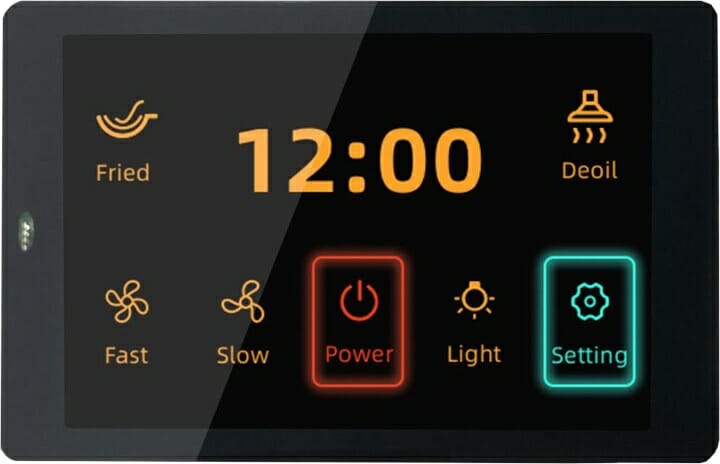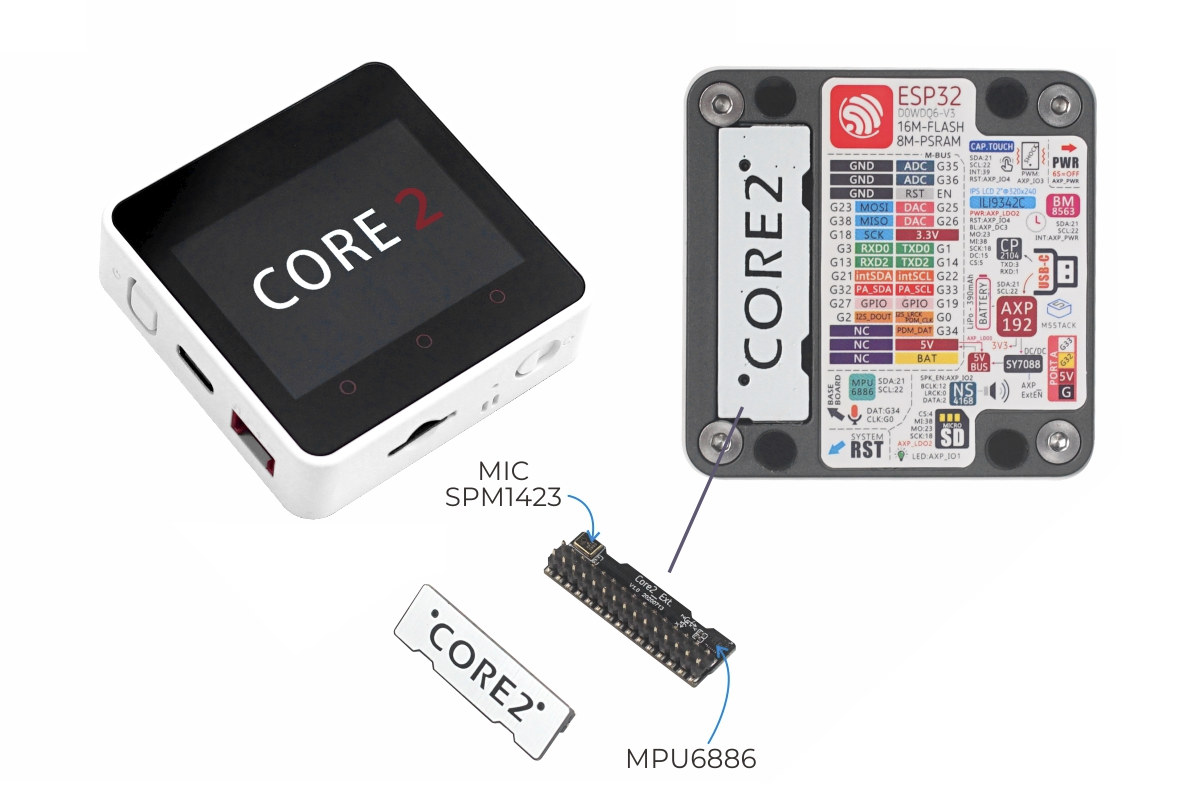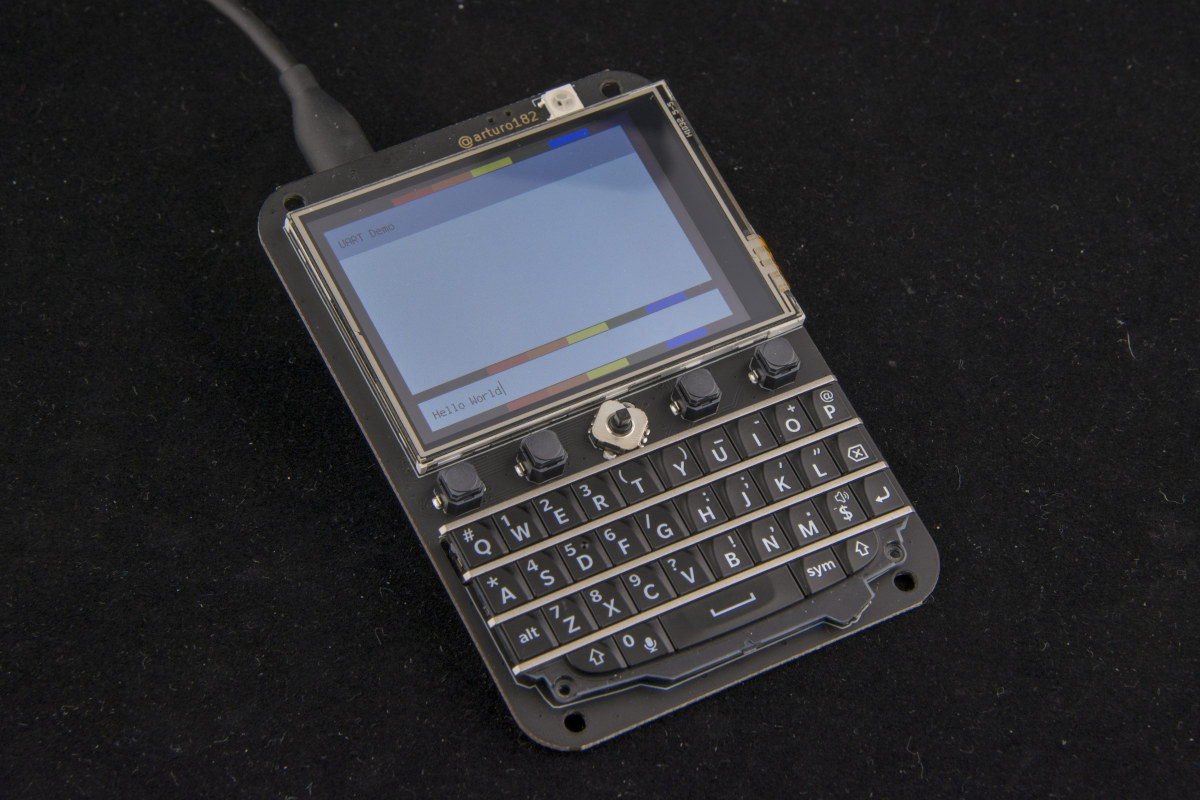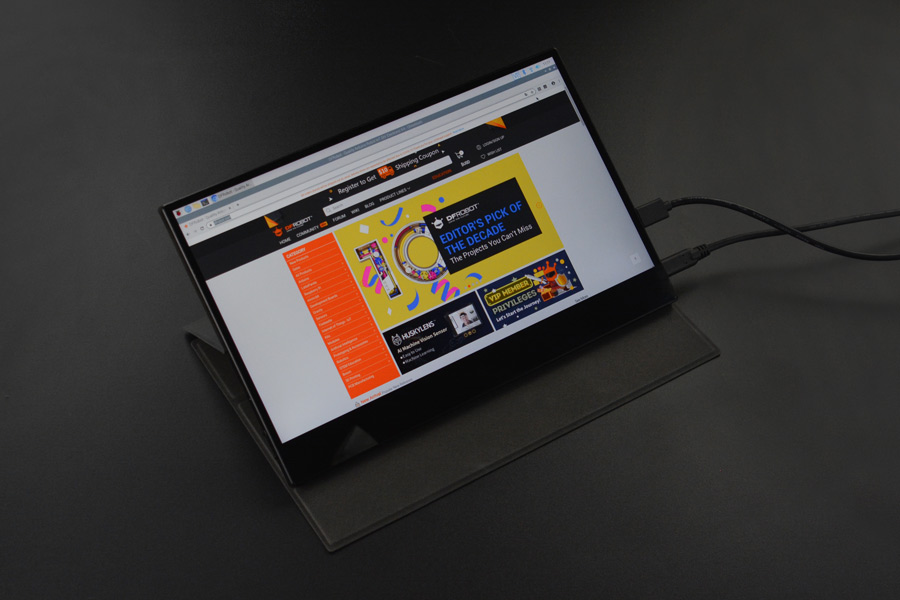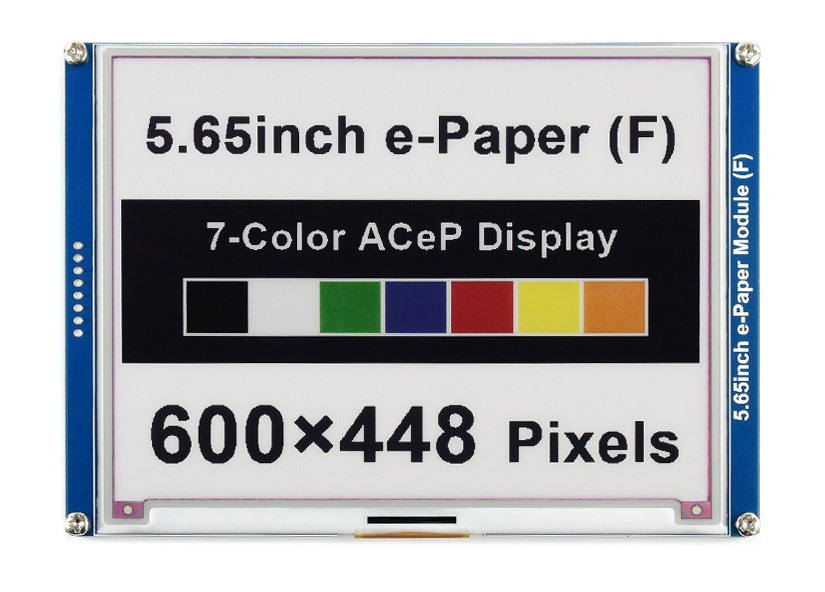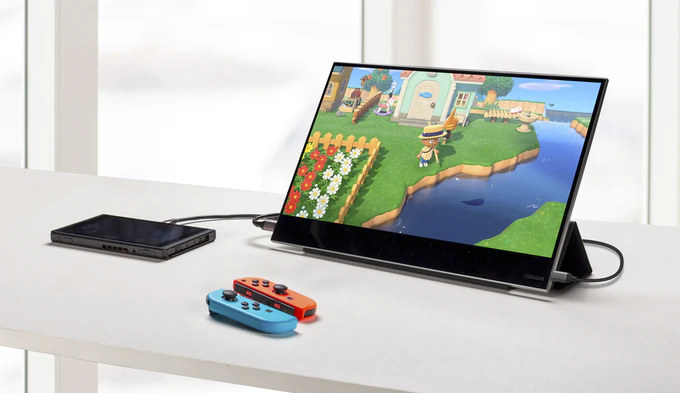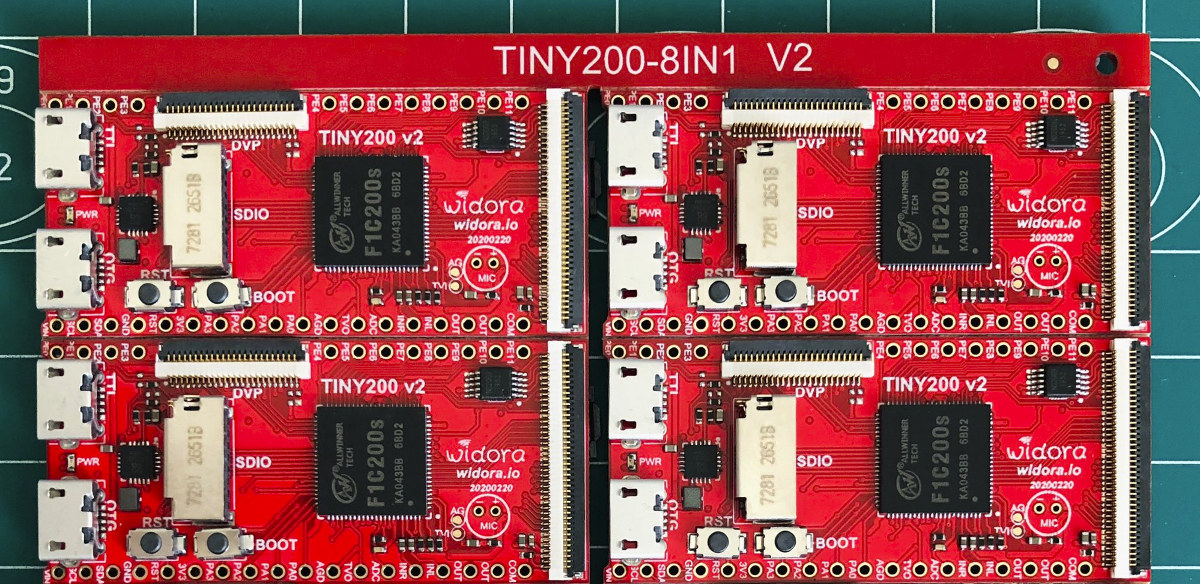The Raspberry Pi Foundation has recently launched the Raspberry Pi 4 keyboard computer with impressive performance thanks to a well-designed cooling solution, and I think it’s a great tool for kids (and adults) who may want to carry a Raspberry Pi around. However, you’d still need a display in each location, so until the foundation releases the Raspberry Pi 4000 laptop next year (full disclose: I made that up!), it might be cool to have a portable display coming with the keyboard PC. That’s what Waveshare is offering with two kits combining a Raspberry Pi 400 together with a 7-inch or 13.3-inch HDMI touchscreen display and other accessories. Not quite as portable as a laptop but it gets close. Here’s the full list of accessories in the kits: Raspberry Pi 400 Kit with keyboard PC with UK keyboard (sadly the only layout option for now), power supply, HDMI cable, preloaded […]
WT32-SC01 is a thin 3.5-inch ESP32 color touchscreen display
Looking for an ESP32 board with a color touchscreen display? There is plenty of choices here, including Espressif Systems own ESP32-S2-Kaluga-1 multimedia devkit with a 3.2-inch display or M5Stack Core2 with a 2-inch display. But if you’d like a thinner and larger display, Tag Wireless WT32-SC01 is an ESP32-powered 3.5-inch color display with a 2-point capacitive touchscreen designed to be integrated into your own project or product. WT32-SC01 WiFi display specifications: Wireless Module – ESP32-WROVER-B module based on ESP32-D0WD dual-core processor up to 240 Mhz with 4MB SPI flash, 8MB PSRAM, 2.4GHz WiFi 802.11 b/g/n up to 150 Mbps, and Bluetooth 4.2 LE Display – 3.5-inch 480×320 display (SPI) with 2-pin capacitive touchscreen (I2C) Expansion – 2x 40-pin I/O pads with GPIO, I2C, VN/VP, I2S, UART, 5V, 3.3V, GND Misc – Reset button (6), power and UART LEDs Power Supply – 5V/1A via USB type-C port for display only, or […]
M5Stack Launches Core2 ESP32 IoT Development Kit with 2-inch Touch Display
M5Stack has just launched an upgrade to its M5Stack Core development with M5Stack Core2 based on the same Espressif ESP32 WiFI + Bluetooth SoC, but adding capacitive touchscreen support to the 2-inch TFT LCD, as well as a motion sensor and a microphone. The new version also adds 8MB PSRAM, a larger 390 mAh battery, and targets IoT terminals for Smart Home, industrial automation or robotics, STEM Education, and DIY prototyping. M5Stack Core2 specifications: SoC – Espressif ESP32-D0WD-V3 dual-core Xtensa LX6 processor clocked at up to 240MHz with 520KB SRAM, Wi-Fi, and dual-mode Bluetooth connectivity External Memory – 8MB PSRAM Storage – 16MB flash storage, MicroSD card slot up to 16GB Display – 2-inch IPS LCD screen with 320×240 resolution (ILI9342C driver), and touchscreen support (via FT6336U controller) Audio – 1W speaker (1W-0928), SPM4123 microphone, NS4168 I2S power amplifier Antenna – 2.4GHz 3D antenna USB – 1x USB Type-C port […]
Keyboard FeatherWing Brings Keyboard & Display to Adafruit Feather Boards
Solder Party is a brand new Swedish startup founded by Arturo182 who previously designed several maker boards including the tiny Serpente R2 CircuitPython prototyping board, and its first product, named Keyboard FeatherWing, brings a QWERTY keyboard and 2.6” color LCD with resistive touch screen to any boards compatible with Adafruit Feather for factor. That means you can build a portable device that runs Linux via the Giant Board, features an FPGA (Orange Crab), or a wide range of connectivity options including WiFi, Bluetooth LE, LoRa, etc… depending on your chosen board. The solution actually brings a bit more than just a keyboard and color, as shown by the list of Keyboard FeatherWing key features: Display – 2.6” 320×240 16-bit color LCD with resistive touch screen (SPI) Storage – MicroSD card slot (SPI) User Inputs controlled by a Microchip SAMD20 MCU QWERTY keyboard (I2C) 5-way button 4 soft tactile buttons Expansion […]
12.5-inch 4K IPS Touchscreen Display Works with Raspberry Pi 4B and other 4K SBC’s
There are plenty of displays for the Raspberry Pi boards, but if you are looking for a high-resolution display with capacitive multi-touchscreen it may be challenging to find. DFRobot may have what you are looking for though with a 12.5″ 4K IPS touchscreen display. The company says it’s compatible with Raspberry Pi 4B SBC, but since it comes with a mini HDMI input port, it should really work with any 4K capable SBC’s or computers. Key features & specifications: 12.5-inch IPS Pro display with 4K UHD (3840×2160) resolution, 60 Hz refresh rate, HDR, 10-point touch 100% Color gamut, 400cd/㎡ brightness, 178° viewing angle Video Input – Mini HDMI input Audio – Built-in left and right loudspeaker, 3.5mm audio jack (output) USB – 2x USB Type-C ports both supporting touch/data and power Misc – Function menu button, power LED, power button Power Supply – Via USB-C port (USB-PD supported) Dimensions – […]
Waveshare Launches an Affordable 7-Color e-Paper Display
Most e-paper displays are black or white with sometimes red or yellow color being added to the mix. But E-Ink has recently launched several color e-Paper display at prices that will not make it affordable to most projects. Waveshare has launched its fair share of e-Paper displays in the past, and now the company is coming with a relatively affordable 5.65″ color e-Paper display with seven different colors for $74.99 plus shipping. Main features and specifications: Display 5.65″ display (114.9 × 85.8mm) Resolution – 600 × 448 pixels Viewing angle – >170° ACeP (Advanced Color ePaper) 7-color with black, white, green, blue, red, yellow, and orange Greyscale – 2 levels Full refresh time – 15s Dot pitch – 0.1915 × 0.1915mm Host Interface – 3-wire SPI or 4-wire SPI Operating voltage – 3.3V/5V Power Consumption 50mW (typ.) during refresh Standby current – <0.01uA (almost none) Dimensions – Board – 138.5 […]
AirTab 15.6″ Portable Display Provides 2x USB-C Inputs (Crowdfunding)
While portable displays have been available as far back as at least 2012, they’ve become more popular in recent years as they can both offer a secondary display to your laptop, or add a larger screen to your smartphone. In the last two years, we’ve already covered BlitzWolf BW-PCM1, T-bao T15A, TAIHE Gemini (which ended up being a failure), Airview, and Desklab among others. But apparently, there’s room for more with the launch of AirTab, a 15.6″ portable touchscreen or non-touch monitor, on Kickstarter that’s already surpassed its $10,000 funding target. AirTab specifications: 15.6″ display with 1920×1080 resolution up to 60 Hz refresh rate; 4ms response time; 256 cd/m2 brightness Touchscreen – Air Touch model only USB – 2x USB-C ports Power Supply – Dimensions – 335 x 245 x 4.9 mm Weight – 500 grams AirTab comes with a foldable magnetic cover that allows the display to be used […]
Widora TINY200 Allwinner F1C200s ARM9 Development Board Supports DVP Camera, Up to 512MB SD NAND Flash
Widora TINY200 is a tiny ARM9 development board equipped with Allwinner F1C200s with a DVP camera interface compatible with OV2640 / 5640 sensor, an audio amplifier, and various storage options from a 16MB SPI flash to a 512MB SD NAND flash. I first heard about the processor when I wrote about Microchip SAM9X60 ARM9 SoC last month, and some people noted there were other fairly new ARM9 SoCs around such as Allwinner F1C200s that also includes 64MB RAM so you can run Linux without having to connect external memory chips. Widora TINY200 V2 specifications: SoC – Allwinner F1C200s ARM926EJS processor @ 400-600 MHz (Overclockable to 900 MHz) with 64MB DDR1 RAM Storage – 16MB SPI NOR flash or 128MB NAND flash and MicroSD card slot or 512MB SD NAND flash. Display I/F – 40-pin RGB FPC cable for resistive touch screens; additional 6-pin FPC cable for capacitive touch support Camera […]



